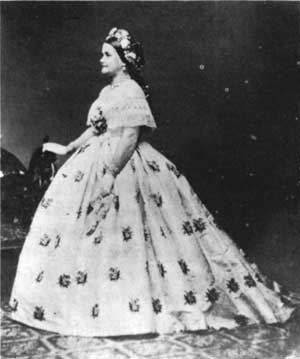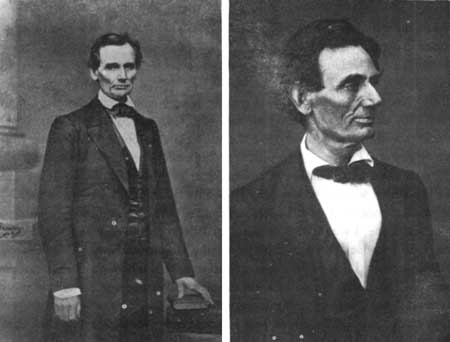|
ABRAHAM LINCOLN From His Own Words and Contemporary Accounts |
 |
24. "I WOULD SAVE THE UNION"
During the summer of 1862, there was much criticism and denunciation of Lincoln. McClellan's Peninsular Campaign had ended in failure. Military failures beset the efforts of the Federal Government. Abolitionist groups in the North denounced Lincoln for not emancipating the slaves. They accused him of being pro-slavery. Speaking the sentiments of this group, Horace Greeley published in The New York Tribune his famous editorial, "The Prayer of Twenty Millions." On August 22, Lincoln replied to Greeley in a letter that was also released to the newspapers. Second Bull Run was only a week in the future; Antietam less than a month. Lincoln had been considering the advisability of emancipating the slaves as a military and political measure. He had decided on the proclamation and was only waiting for a favorable opportunity to announce. it. In the letter to Greeley there is a hint that the administration's policy on emancipation might change. It was not seen by the abolitionists, however, and their anger only increased. Exactly a month to the day after writing his letter to Greeley, Lincoln was to issue his preliminary Emancipation Proclamation, taking advantage of the opportunity offered by the Battle of Antietam, which, though indecisive, turned back Lee's first invasion of the North. The Greeley letter is a notable statement of the policy that governed Lincoln during the first year and a half of the war.
Dear Sir: I have just read yours of the 19th, addressed to myself through the New York "Tribune." If there be in it any statements or assumptions of fact which I may know to be erroneous, I do not, now and here, controvert them. If there be in it any inferences which I may believe to be falsely drawn, I do not, now and here, argue against them. If there be perceptible in it an impatient and dictatorial tone, I waive it in deference to an old friend whose heart I have always supposed to be right.
As to the policy I "seem to be pursuing," as you say, I have not meant to leave any one in doubt.
I would save the Union. I would save it the shortest way under the Constitution. The sooner the national authority can be restored, the nearer the Union will be "the Union as it was." If there be those who would not save the Union unless they could at the same time save slavery, I do not agree with them. If there be those who would not save the Union unless they could at the same time destroy slavery, I do not agree with them. My paramount object in this struggle is to save the Union, and is not either to save or to destroy slavery. If I could save the Union without freeing any slave, I would do it; and if I could save it by freeing all the slaves, I would do it; and if I could save it by freeing some and leaving others alone, I would also do that. What I do about slavery and the colored race, I do because I believe it helps to save the Union; and what I forebear, I forebear because I do not believe it would help to save the Union. I shall do less whenever I shall believe what I am doing hurts the cause, and I shall do more whenever I shall believe doing more will help the cause. I shall try to correct errors when shown to be errors, and I shall adopt new views so fast as they shall appear to be true views.
I have here stated my purpose according to my view of official duty; and I intend no modification of my oft-expressed personal wish that all men everywhere could be free.
LINCOLN TO GREELEY, AUGUST 22, 1862.

Mary Todd Lincoln in formal reception attire as mistress of the
White House./P>

Left: The first photograph of Lincoln by Brady. It was made in New York,
February 27, 1860. Right: Three-quarter profile portrait made by Alexander Hesler in
Springfield, Ill., June 3, 1860.

|

|
|
|
Last Modified: Thurs, Sep 11 2003 10:00:00 pm PST |

